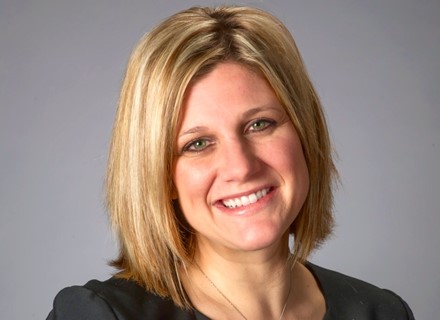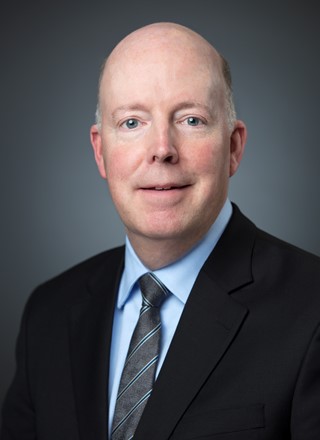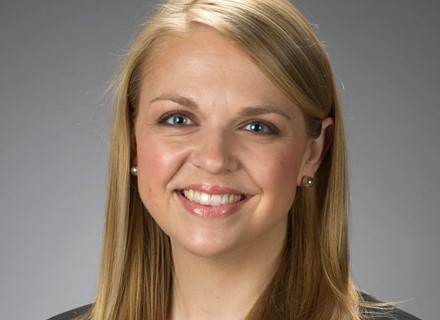Director of Finance & Facilities
Guest Column: Doug Franson, Part II

Martijn Cremers
Monday, 10 August 2020Director of Finance & Facilities
Guest Column: Doug Franson

Martijn Cremers
Monday, 3 August 2020In Notre Dame,
Doug
Guest Column: Kara Palmer

Martijn Cremers
Monday, 27 July 2020Director of Administration
Guest Column: Walt Clements

Martijn Cremers
Monday, 20 July 2020- July 24: 33 Chicago MSBA students.
- July 24-25: 35 Chicago MSF students.
- July 31-Aug. 7: 53 new EMBA students (Special thanks to Nick Farmer and Cassie Kline for landing an incredible new cohort of students (Nick), and for beginning their on-boarding and nurturing our new family (Cassie)!).
- Aug. 6-8: 39 returning Chicago EMBA students.
- Morgan McCoy, Mendoza’s operations team leader.
- Tracy Freymuth, the student services team leader for the programs in South Bend.
- Christine Gramhofer, the student services team leader for the programs based in Chicago.
- Numerous faculty members, for their eagerness and dedication, and who will be the first at Notre Dame to conduct live classroom instruction.
Associate Dean, Executive Education
Teaching Professor, Finance
Guest Column: Kristen Collett-Schmitt

Martijn Cremers
Monday, 13 July 2020The ‘Old’ is ‘New’ Again
Last year, we heard a lot about our new specialized master’s programs. In their inaugural year, the residential MSBA and MNA programs advanced Mendoza’s distinctive mission as a Catholic business school by focusing on Dean Cremer’s priorities of incorporating analytics into curriculum and emphasizing business as a force for shared good.
We proudly toasted our MSBA and MNA graduates in May and sent them off to make a difference in the world – students like Joe Jenkins (MSBA ’20) who started an app to track COVID-19 in Rhode Island, and Morgan Delp (MNA ’20) who recently began her tenure as dean of academics at a Catholic high school in Toledo.
But what about our old specialized master’s programs? Thanks to recent curricular initiatives, even these programs are new again.
Take, for example, the MSM program. In February, the first-ever academic director, Kris Muir, was appointed to oversee this program originally founded in 2013. In June, we welcomed a record-breaking 85 MSM students to Mendoza. Our faculty and students quickly pivoted to 100% online classes for the summer session.
By effectively doubling the size of this program, new and exciting curriculum initiatives are now possible, such as Interterm skill courses in disciplines such as digital marketing, consulting analytics and leadership development. More importantly, a concentration in sport management is planned for 2021. Over time, more concentrations will be launched to better allow students to turn their passions into a career path.
The MSA program, originally founded in 1998, has always had its eyes on an integrated view of business. The top-four ranked program offers a flexible curriculum where MSA students can enroll in elective courses in other business disciplines.
This academic year, under the guidance of new academic director Jim Seida, the MSA program will launch a data analytics concentration with courses including Accounting Data Management. Students with non-accountancy undergraduate backgrounds now also can enroll in the MSA program after completing a rigorous boot-camp-of-sorts called the Accounting Immersion Program. This summer marks the second iteration of the successful AIP program.
Finally, what has the College’s oldest graduate program been up to these days? The Executive MNA program, founded two years after Mendoza’s BBA program and 13 years before the two-year MBA program, recently went through a systematic curriculum review, expanded career support to students and piloted leadership development coursework under the guidance of academic director Angela Logan.
This June, we welcomed a record-breaking cohort of 48 nonprofit professionals from organizations such as Notre Dame, Beacon Health System, the Peace Corps and Volunteers of America. More than ever before, the EMNA program embodies the spirit of solidarity, arming “servant hearts” with “business minds” so they can take particular care of society’s greatest needs.
I appreciate the opportunity to share the existing news of our specialized master’s programs, whether they be “new” or “new again.” Of course, this incredible ability to innovate would not be possible without the dedication of faculty and staff who support these programs and are willing to be flexible in response to the changing graduate business landscape.
In Notre Dame,
Kristen Collett-Schmitt
Associate Dean for Specialized Master’s Programs
Associate Teaching Professor of Finance






